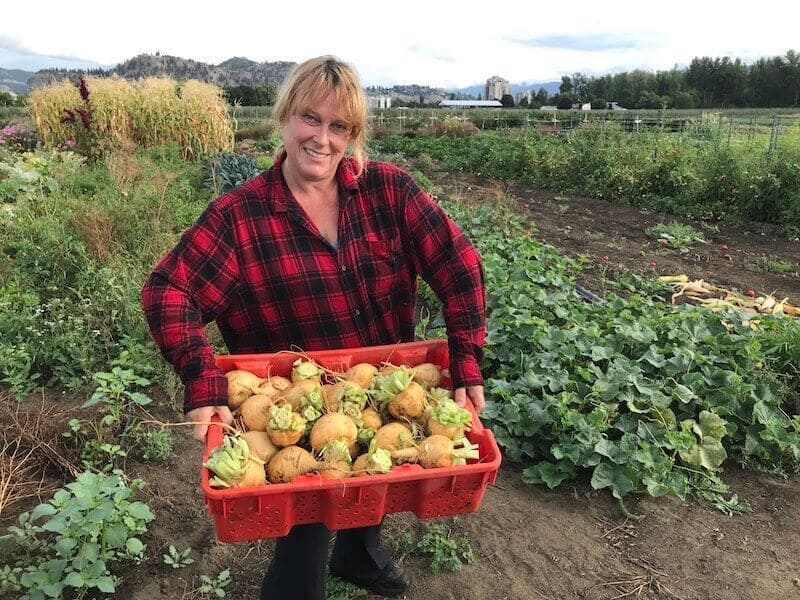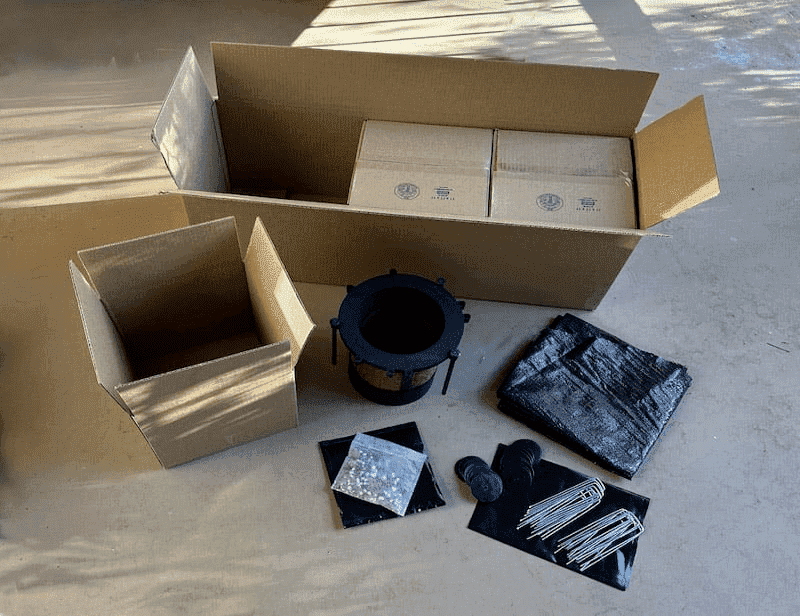Cultivating A Global Network Of Food Ambassadors
A Food Ambassador is a role or title given to individuals who participate in a program created by Growing To Give aimed at fostering food independence for those in need, especially in urban areas where people struggle with the high cost of fresh, nutritious produce.
For most people living in cities and towns across the country and around the world, there is simply not the garden space to grow enough food for themselves and their families. Growing vegetables in space saving containers may seem like viable option, however pots and planters produce little food.
Our answer is to provide people in need with space adaptable Food Ambassador Gardens that are simple to use, grow a lot of food for a fraction of the cost of produce sold at Walmart, Costco and Kroger. However, these outlets are a great place to purchase bagged soil seeds, plants, ground cover, gardening books, and various pots and planters.
Beyond groceries, Kroger has an extensive online store that features a wide spectrum of garden supplies for home gardeners. Not to be outdone, Costco has both instore and online garden centers for novice and expert alike.
The Food Ambassador program, initiated by Growing To Give, is a unique and transformative concept designed to combat food scarcity in urban settings. Ambassadors are individuals engaged in a program that not only fosters food independence but also tackles the growing issue of limited access to affordable, fresh produce in cities.
The challenge in urban areas is the lack of adequate space for traditional gardening, making it difficult for many city dwellers to grow their own food. While container gardening offers a space-saving solution, it often yields limited produce.
Growing To Give addresses this by offering Food Ambassador Gardens, innovatively designed for adaptability to limited spaces. These gardens are not only simple to use but also remarkably efficient, enabling the growth of substantial amounts of food at a fraction of the cost associated with standard gardens or containers.
Our Food Ambassador Program empowers urban residents, particularly those in need, to actively participate in their own food production, thereby promoting sustainability and food independence.
One Million Food Ambassadors by 2050
Our goal is to cultivate a global network of "Food Ambassadors," who will adopt, endorse, and share the knowledge of Crop Circle Gardens, ensuring food security for future generations. To advance the “goodwill” of the program, we ask each of our ambassadors to “gift” on the gardens to someone in need.
The Program
The program starts with a small, targeted direct mail campaign to approximately 500 residents of a town or city where research has shown that our program would have an effective and immediate impact on the community.
We anticipate 50 people to respond to our flyer, which would ask for their story and how their family would benefit from the “gift” of our Food Ambassador Gardens. We would then match successful applicants with one or more sponsors that have donated to support the program
Applicants can also apply on line simply by sending us an email and sharing their story. We would love to hear how our Food Ambassador Gardens can help you.
What's In The Box
Three Crop Circle Gardens are shipped in a Food Ambassador Kit that contains all the components needed to grow food including 3 irrigators, 3 biodegradable root tubes, 3 root tube bottoms to prevent root binding in containers, assorted fasteners, 3 ground covers to thwart weeds, staples, and our own mix of organic plant booster fertilizer. Installation instructions are provided along with information about the sponsor that “gifted” each of the gardens in partnership with Growing To Give. Some corporate sponsors may include gift certificates and/or discount cards or codes to offer additional help.
Bulk shipments are arranged for community ambassadors, facilitating distribution and supporting the vision of widespread, community-driven food resilience.
Crop Circle Gardens are boxed and shipped together in a 12 x 12 x 36-inch box via the post office. Each Crop Circle Garden includes:
---a pre-fertilized, bio-degradable tube insert (a Root Tube last 3 years before in needs replacement and can be recharged with compost tea at the beginning of each season) that is buried in ground and filled with soil to grow plants
---a Crop Circle Base (the bottom of each unit that prevents the root bound tendencies of a plant grown in a container)
---a clip that holds the fold of the tube insert
---3 fasteners to secure the unit to the ground and prevent removal from wind blow
---a 5-foot round ground cover to prevent weed growth
---30 staples to secure the ground cover to the ground
---installation diagram & instructions
---a proprietary organic fertilizer pouch (booster packs)
16 Food Ambassador Boxes containing 48 Food Ambassador Gardens can be shipped on a pallet to a Community Food Ambassador for distribution to individual Food Ambassadors that join the program.
Support
A series of DIY videos are offered that cover un-boxing, installation, planting, care and maintenance for using Food Ambassador Gardens to grow vegetables, herbs or flowers in gardens and garden containers.
Typically, Food Ambassador Gardens are hand watered however, automated watering can be enabled through various off-the shelf attachments and connections.
We encourage Food Ambassadors to share with one another on our dedicated social media platform where they can exchange ideas and learn from one another.
Community Food Ambassadors
Our Community Food Ambassador program was created for those that want to adopt a more proactive role in their communities.
The Community Food Ambassador Program combines elements of community service, education, and sustainability to address the challenge of rising costs and accessibility of fresh produce. The primary goals and responsibilities of a Community Food Ambassador would include:
Promoting Agricultural Technology: Introduce and promote the use of Crop Circle Gardens which are adaptable to various spaces and climates and use water and nutrients more efficiently than conventional gardens.
Achieving Food Independence: Help people learn to use these gardens to produce their own fresh produce, even in urban settings, thereby reducing reliance on external food sources.
Educational Outreach: Community Food Ambassadors would educate others about the benefits and methods of using these gardens, potentially offering workshops or one-on-one assistance.
Supporting Communities: We encourage Community Food Ambassadors to play a role in identifying and supporting individuals or communities that could benefit from food independence.
Sharing Knowledge: They would endorse and share their experiences and knowledge about the gardens, contributing to a larger network of food-secure communities.
Global Network Goal: Community Food Ambassadors would help build a network of one million Food Ambassadors by 2050 to enhance global food security through community and urban gardening.




.png)
.png)
.png)

.png)